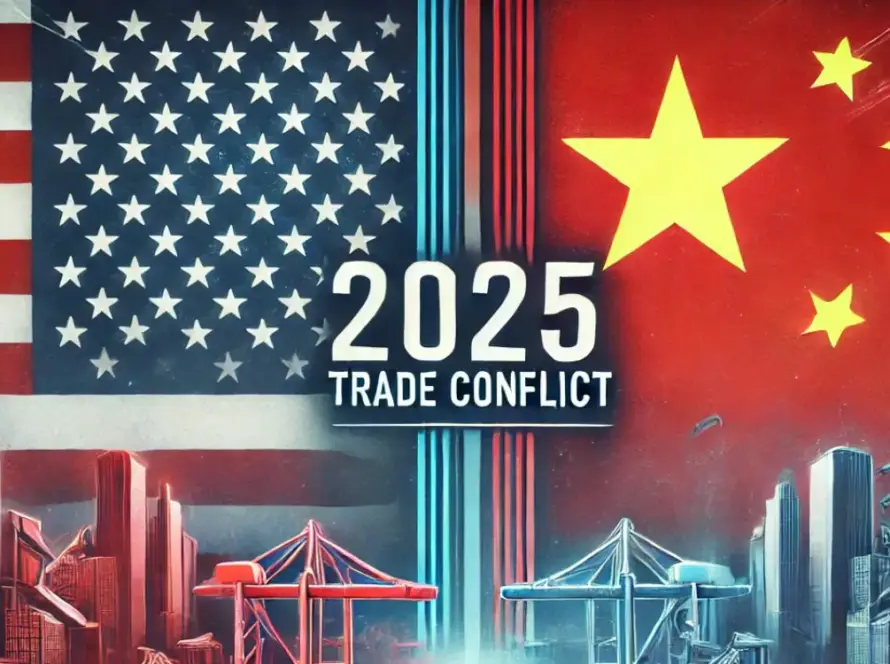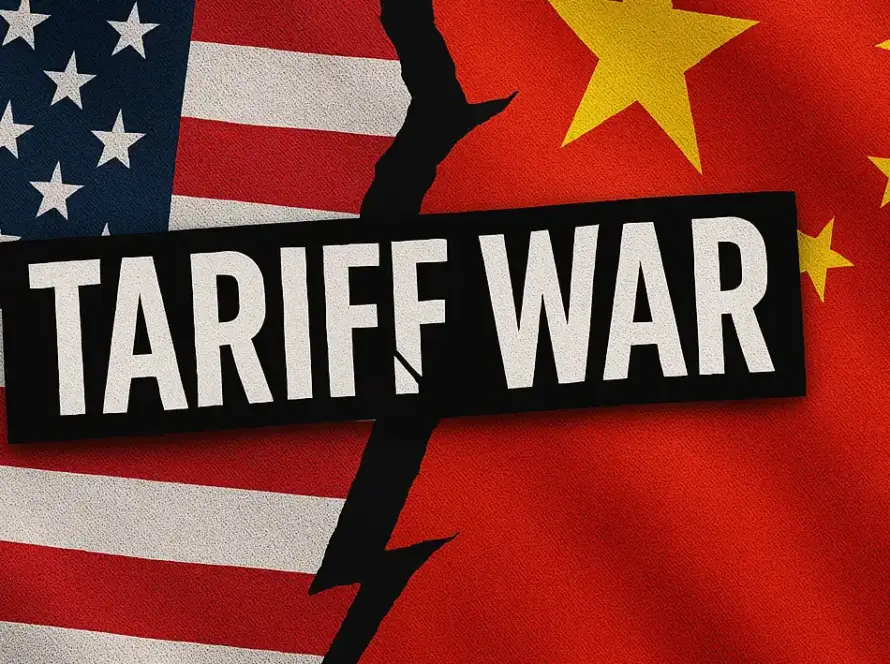On May 12, high-level trade talks between China and the United States concluded in Geneva. The meeting delivered a long-anticipated outcome. Both governments jointly announced major tariff reductions on each other’s imports. This marked a clear shift toward cooperation after years of escalating trade tensions.
Under the new agreement, the United States canceled 91% of the extra tariffs on Chinese goods. It also suspended another 24% for a 90-day period. In return, China has enacted identical reductions and suspensions on tariffs affecting American products.
The World Trade Organization praised the decision. Global markets also welcomed the decision. This shift moves both sides from confrontation to dialogue. Both countries now base their approach on mutual respect and practical needs.
Sex Toy Industry Responds Swiftly to Tariff Relief
The tariff agreement immediately sent ripple effects through the global supply chain. The reduction in sex toy import tariffs quickly eased pressure on suppliers and sparked renewed activity in the market.
For manufacturers of adult products, especially Chinese vibrator manufacturers, the relief could not have come at a better time. According to several Shenzhen-based exporters, orders from U.S. clients surged within 24 hours of the announcement. Some buyers confirmed payments overnight, urging factories to resume shipments as quickly as possible.
Tariffs on sex toy imports have been reduced from previously high levels. This change has revived a sector that was struggling with sudden cost increases. Our clients on Amazon and in retail chains had paused procurement since April.
“Now they are racing to secure inventory,” said a spokesperson for a mid-sized OEM. The company specializes in women’s health products and is closely watching the 90-day tariff window.
Adult toys are a type of consumer product that depends on cross-border logistics and affordable pricing. This made them one of the hardest-hit categories during the Trump-era tariff hikes. Brands like Unbound rely on parts and finished products manufactured in China. They warned that tariffs could lead to rising prices, delayed shipments, and lower profit margins.
Now that tariff surcharges have eased, many expect a short-term rebound—especially for goods shipped from China through Hong Kong routes.
Trump Reassures on China, But Focus Shifts to Europe
While the tariff agreement marks a turning point, political dynamics remain in flux. After the Geneva talks, President Donald Trump gave a press statement.
President Donald Trump addressed the issue after the Geneva talks.
“We will not return to the 145% tariff level on Chinese imports,” he said.
“That would mean a real decoupling.”
Observers viewed this as a rare moment of restraint. The comment came as both political parties pushed for supply chain rebalancing.
But just hours after the joint announcement, Trump shifted focus to the European Union.
“They sell us 13 million cars, and we can’t even get one in,” he said during a White House briefing.
“We’re just getting started with them.”
This new tone raised concerns that the EU could be next in line for tariff hikes. Sectors like healthcare and agriculture could be next to face tariff pressure.
International observers say the China-US tariff agreement offers short-term relief. But many believe the larger trade war and supply chain rivalry is far from over. Still, both countries have restarted formal trade talks. The creation of a new consultation mechanism shows a shift toward diplomacy instead of disruption.
These developments reflect the renewed role of trade agreements in restoring global supply chain stability.
For Chinese Manufacturers, a Window to Reinforce Long-Term Strategy
Many Chinese manufacturers see this 90-day tariff pause as more than a short-term break. This includes companies in the sexual wellness sector. Many are now rethinking their position in the global supply chain. Companies are now increasing production to meet renewed demand.
At the same time, they are working to diversify logistics routes and improve product design. Many are also building stronger trade partnerships beyond the United States.
Some adult toy exporters are now shipping inventory through Hong Kong and ASEAN routes. Others are exploring new growth opportunities in Europe and Latin America.
“The trade war with China taught us the importance of resilience,” said the founder of a coastal factory that makes women’s intimate care products.
“We’re not just shipping goods. We’re building relationships, managing risk, and responding in real time.”
Despite lingering tariff rates and political uncertainties, the latest agreement demonstrates that pragmatic cooperation can prevail. Both countries now face pressure from domestic consumers and global trade watchdogs. In this context, choosing negotiation over confrontation may be the only sustainable path forward.
The adult products industry depends on innovation and trust. For this sector, stable tariff policy is about more than just cost. It protects the freedom to keep designing, creating, and delivering value across borders.
From Escalation to De-escalation: A Timeline of Tariff Impacts
The tariff impact on adult toys and other consumer products unfolded rapidly in just over a month. Here’s how the situation evolved:
April 8 — The Trump administration introduced a “reciprocal tariff” plan. As a result, tariffs on Chinese imports went up to 145%. This included many items manufactured in China, from agricultural products to sexual wellness goods.
April 15–30 — Costs surged across the board. U.S. distributors in sectors like apparel, tech, and adult toys faced shipment delays, price increases, and retail hesitations. Brands such as sex toy brand Unbound voiced concerns across social media, highlighting shrinking margins and price uncertainty.
May 1–9 — Getty Images widely shared photos of empty warehouse shelves. These images became symbols of the escalating trade war. Buyers stopped placing new orders because they feared more delays and long-term uncertainty.
May 10–12 — Top Chinese and U.S. officials met in Geneva. The high-level meeting marked the first formal dialogue since the new wave of tariff hikes.
May 13 — Both countries released a joint statement. Both sides agreed to mutual reductions: 91% of tariffs cancelled, 24% suspended for 90 days, and only 10% retained.
May 14, 12:01 PM — The agreement took effect. Markets responded immediately. In the sex toy sector, factories resumed shipments and procurement surged. Companies like Chinese vibrator manufacturers regained momentum.
This timeline shows that the tariff dispute, once deeply damaging, has entered a new phase. While risks remain, dialogue is replacing confrontation—and industries are watching closely.
Gaia in Love’s Perspective: Trust, Timing, and Global Readiness
At Gaia in Love, we see the China-US tariff agreement as more than a diplomatic breakthrough. It also reminds us what matters most in global business: trust, flexibility, and long-term vision. As a Chinese vibrator manufacturer committed to women’s wellness and design innovation, we welcome any shift toward mutual understanding.
Over the past few months, our team has worked closely with overseas partners. We focused on managing rising costs and adjusting delivery schedules. Together, we tackled increased costs caused by shipping delays and raw material fluctuations.
At the same time, we kept product quality high despite outside pressure. This recent agreement reaffirms our belief in collaborative progress.
The tariff relief gives us short-term breathing room. But our main focus is building long-term supply chain solutions. We also aim to grow responsibly in more global markets.
Global trade is changing quickly. Gaia in Love is ready with flexible logistics, strong client relationships, and a clear sense of purpose. Whether through OEM or branded export, each product shows our quality and our spirit of cooperation.




